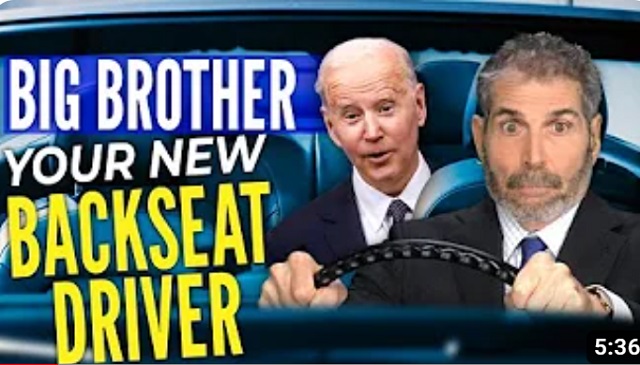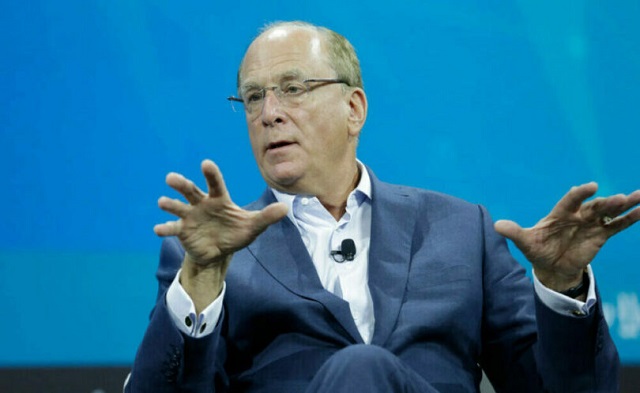Bruce Dowbiggin
Exit Stage Right: Bordering On A Change
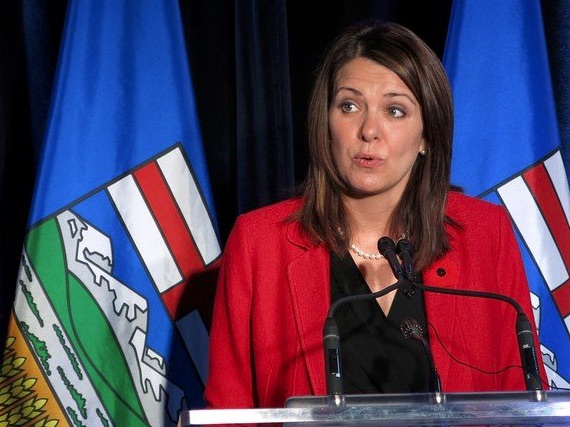
!!Sign up today for Not The Public Broadcaster newsletters. Hot takes and cool slants on sports and current affairs. Have the latest columns delivered to your mail box. Tell your friends to join, too. Always provocative, always independent. https://share.hsforms.com/16edbhhC3TTKg6jAaRyP7rActsj5 !!
“There’s something happening here. What it is ain’t exactly clear.” Buffalo Springfield
In a delightful irony the hippy ode to 1960s Richard Nixon tyrant-obsession is now applicable to 2020s Woke oppression. While the Left still reminisces about its rebellious past it has in fact morphed into the Establishment Party. The smugness of the new symmetry was summed up in Montreal by F1 driver Sebastian Vettel, whose team is sponsored by Saudi Aramco (the world’s largest petroleum producer) criticizing Alberta’s energy industry for sins against Gaia.
Short of a miracle, nothing will penetrate this orb of virtue. These onetime radicals have closed the information loop; nothing is getting in now. The View’s self-image as truth speakers for the power grid is locked in for life, contrary information be damned.
Meanwhile the former party of Wall Steet/ Bay Street is now churning with revolutionary foment about sovereignty and secession. While pundits will say that this right-wing pushback has happened in the past— see: Social Credit Party/ Reform Party— there is a dark commitment contained in the current crisis.
The elites of Ottawa and DC saw Donald Trump as a rogue Gilgamesh bent on conquering gullible conservatives, but he was instead a messenger from the middle class to the elites that they have failed the people who don’t fly private jets. Instead of heeding the warning the Left condemned Trump, believing his demise would spell the end of the rebellion.
Fat chance. Faster than you can say Ron DeSantis, governments in affected regions are setting out the terms of their continued cooperation with the elites. While Elon Musk points Twitter away from its advocacy role as establishment censors, grassroots movements are staking out a challenge.
In Alberta, where Jason Kenney’s half-hearted attempts to articulate the province’s resentment at having its energy industry sacrificed to foreign grad students and Marxists, a potential successor is being blunt on where she’s going. Enter former Wildrose leader Danielle Smith, now running for the United Conservative Party leadership. “On Day One, I’m introducing the Alberta Sovereignty Act, authorizing our provincial government to refuse to enforce any federal law or policy that attacks Alberta’s interest or our provincial rights.”
Smith sees Quebec’s rejection of federal rights & freedoms and British Columbia’s lax enforcement of cannabis laws prior to legalization as a pathway in which Alberta could opt to dodge federal law. “It seems to me we’ve established a precedent that laws that do not work in a particular jurisdiction, that the province has the latitude to either seek an exemption or say it won’t apply,” Smith said. She pointed to Quebec’s Bill 96, which insists on French supremacy in the province, as examples for Alberta to follow.
Jesse Kline in the National Post (a sovereignty sceptic) outlined the issues: “Alberta’s grievances are very real. Our electoral system gives more weight to voters in Quebec and Atlantic Canada than in the West. The Senate, which is supposed to be regionally represented, affords twice as many seats to Ontario and Quebec as all the western provinces combined.
“The equalization system is full of baked-in inequalities that put Alberta at a disadvantage. And if Alberta’s oil and gas industry isn’t being attacked by the openly hostile Liberal government in Ottawa, it’s being stymied by the other provinces.”
Legal scholars were quick to dampen enthusiasm for the proposal. “The idea is frankly so absurd and untenable I’m not even sure it would create a crisis, because it would be laughed out of court too quickly for a crisis to develop,” says Emmett Macfarlane, a constitutional law expert at the University of Waterloo.
The usual media suspects, too, are tut-tutting the notion. They repeat the hoary clichés from Meech Lake days about “a peaceful, prosperous and democratic country that has withstood the test of time.”
In this gauzy nostalgia there seems to be little realization at the heart of federal power in Ottawa that they’re losing the country. That, maybe, siding with the guy who calls fellow citizens fascists, Nazis, anti-science and worse—then goes and hides in a bunker while you get honked at— is not a legal problem but a moral one.

How far would Trudeau’s federal government be willing to go in punishing elected officials in Alberta and perhaps Saskatchewan who defy them? Having the law on your side is one thing. Enforcing it is another. Waging economic war against the West on behalf of Ontario only perpetuates the grievances of the West and splits the nation further. Sovereignty author Barry Cooper did the math. “Indeed, that is the whole point. The Canadian Constitution has never worked in favour of Albertans, so it needs to be changed.”
Meanwhile, Texas Republicans, smarting over the porous border with Mexico and their own GOP senators voting to erode the Second Amendment are drawing their own line in in the dust. In a recent document, the state GOP called for a referendum on secession in 2023. The referendum will determine if Texas should “reassert its status as an independent nation.”
“The legality of seceding is problematic,” Eric McDaniel, associate professor of government at the University of Texas at Austin, told The Texas Tribune in 2016. “The Civil War played a very big role in establishing the power of the federal government and cementing that the federal government has the final say in these issues.”
But halting the erosion of state sovereignty might be too late. A series of recent referenda have revealed that nine Oregon counties have voted to join Idaho, with another three to vote in November. Those counties— which make up 64 percent of Oregon’s land mass— are fed up with Oregon’s Uber-left government based on the coast and seek to join the more conservative Idaho.
This comes in concert with a wholesale exodus of people and businesses from high-tax blue states such as New York, Illinois and California to red states with lower taxes, less crime and fewer regulations. In Canada, urban Boomers are fleeing the major metro regions for rural Ontario or the Maritimes, convinced that the urban crime, soaring taxes and a crumbling infrastructure delivered by today’s elites has seen its day.
As Buffalo Springfield said, “ It starts when you’re always afraid. Step out of line, the man come and take you away.”
Bruce Dowbiggin @dowbboy is the editor of Not The Public Broadcaster (http://www.notthepublicbroadcaster.com). The best-selling author was nominated for the BBN Business Book award of 2020 for Personal Account with Tony Comper. A two-time winner of the Gemini Award as Canada’s top television sports broadcaster, he’s also a regular contributor to Sirius XM Canada Talks Ch. 167. His new book with his son Evan Inexact Science: The Six Most Compelling Draft Years In NHL History is now available on http://brucedowbigginbooks.ca/book-personalaccount.aspx
Bruce Dowbiggin
Coyotes Ugly: The Sad Obsession Of Gary Bettman

It came to this. Playing in the 6,000 seat Mullet Arena on the campus of Arizona State. Owned by a luckless guy who eschewed the public spotlight. Out of the playoffs, their bags packed for who knows where, the Arizona (née Phoenix) Coyotes gave an appreciative wave to the tiny crowd gathered to say Thanks For The Memories.
With that they were history. Although NHL commissioner-for-life Gary Bettman has promised the last in a set of hapless owners that he can revive the franchise for a cool billion should he build the rink that no one was willing to build for the Yotes the past 20 years.
The Arizona Republic said good riddance. “Metro Phoenix lost the Coyotes because we are an oversaturated professional and college sports market with an endless supply of sunshine and recreational choices. Arizona may have dodged a slapshot:
We have the NFL Cardinals, the MLB Diamondbacks, the NBA Suns, MLB spring training, the WM Phoenix Open, the Phoenix Rising, the WNBA Mercury, the Indoor Football League Rattlers and the Arizona State Sun Devils. There hasn’t been a household name on the Coyotes since Shane Doan, and half of Phoenix probably doesn’t know who he was”.
Likely they’ll be a financial success in Salt Lake City where there’s a viable owner, lots of money and a will to make it work. They’ll need a will because— stop me if you’ve heard this before about the Coyotes— the rink they’ll play in this fall has only 12,500 unobstructed views for hockey.
Watching this farce we recalled getting a call from Blackberry co-founder Jim Balsillie in 2008, shortly after our book Money Players was a finalist for the Canadian Business Book of The Year. We’d written a fair bit about the Coyotes in our work and someone had told Balsillie we might be the ones to talk to about a plan he was concocting to buy the bankrupt Coyotes and eventually move them to Hamilton.

Balsillie was salty over the way he’d been used as a stalking horse in the financial troubles of the Pittsburgh Penguins in 1990s. Flush with money from the huge success of RIM, Balsillie offered to buy the Pens, with an eye to moving them to southern Ontario if Pittsburgh didn’t help build a new arena for the team.
In time, Balsillie saw that Bettman was only trying to protect the investment Mario Lemieux and others had in the Pens. Balsillie was the black hat who eventually spooked Pittsburgh into giving the current owners what they wanted. At the end of the day, Mario got his money and Balsillie was given a “thanks for trying”: parting gift of nebulous promises.
Still smarting, Balsille vowed not to be used again. in his desire to bring the NHL to southern Ontario. So when the Coyotes owner Jerry Moyes threw the keys to the team on Bettman’s desk, he saw an opening in the bankruptcy that followed. Seeing Bettman as the impediment, Balsillie decided to buy the team out of bankruptcy, a process the NHL could not legally prevent.
What Balsillie wanted to know was “What then? How would Bettman fight back?” We told him that no one flouts Bettman’s authority within the NHL. (All the current owners since 1993 have come aboard on his watch.) And that he’d have to get the Board of Governors to approve his purchase. Odds: Nil.
That’s what happened. Rather than admit that the Valley of the Sun was poisoned for hockey, Bettman found another series of undercapitalized marks to front the franchise while the league quietly propped up the operation. No longer was the Coyotes’ failure about the fans of Arizona. It was about Gary Bettman’s pride.

Protestors stand outside a press conference in Tempe featuring Arizona Coyotes executives discussing propositions related to a new arena and entertainment district. (Photo by Brooklyn Hall/ Cronkite News)
Where he had meekly let Atlanta move to Winnipeg he fought like hell to save Arizona. And his power. (His obstinacy on U.S. network TV is another story.)
Fast forward to last week and the abject failure of that process. The Arizona Republic naively fawned on Bettman for his many attempts to save the team. In fact, they were just attempts to buttress his grip on the league. While the Coyotes may have been a mess, Bettman has succeeded in preserving the investments of most of the business people who bought his NHL business prospectus.
Sometimes it meant riding into Calgary to chastise the locals for their parsimony in not giving the Flames a new rink. Ditto for Edmonton. Ditto for Winnipeg and other cities. Other times it was to shore up weak partners to protect the equity of other prosperous cities. Sometimes it was to tell Quebec City, “Not gonna’ happen.”
For his loyalty to the owners and through some luck— Gretzky to the Kings— Bettman has made the NHL work in places no one might’ve imagined. Nashville. Raleigh. Tampa. Las Vegas. Dallas. Not at the level of the NFL, NBA or MLB, but at a comfortable equity-affirming status. Nothing happens without his say-so in the NHL. Or without him getting credit. Secondary NHL execs who wanted credit for their innovations were quietly punted.
When Houston finally gets a franchise from Gary they’ll part with $1.5 billion for the honour. While the commissioner has played down new franchises and expanded playoffs, you can bet your last dollar that he’s told owners they’re in line for more expansion cash— cash they don’t have to split with players in collective bargaining.
One more certainty. As long as Bettman rules the NHL you won’t see an NHL team back in Arizona.
Bruce Dowbiggin @dowbboy is the editor of Not The Public Broadcaster A two-time winner of the Gemini Award as Canada’s top television sports broadcaster, he’s a regular contributor to Sirius XM Canada Talks Ch. 167. Inexact Science: The Six Most Compelling Draft Years In NHL History, his new book with his son Evan, was voted the seventh-best professional hockey book of all time by bookauthority.org . His 2004 book Money Players was voted sixth best on the same list, and is available via brucedowbigginbooks.ca.
Bruce Dowbiggin
Why Are Canadian Mayors So Far Left And Out Of Touch?

‘The City of Edmonton pays for a 22-person climate team but doesn’t know who on that team is responsible for what, or what that team has accomplished. Meanwhile, Council takes a pay raise and bumps our property taxes by 8.6%” @michaelistuart
We just returned from a long trip to discover that the City of Calgary wants to potentially re-zone our neighbourhood. Bridle Estates is a collection of 175 bungalow villas for people aged 55-plus. While some people still work most of the inhabitants are retirees. The city’s earnest idea is to create low-cost housing for the tens of thousands arriving here in the city from away.
You can see why a city hall obsessed with white privilege wants to democratize our neck of the south-west corner of the city. Enforced justice has a great tradition. 1970s American cities decided that bussing was the antidote to segregation. After a SCOTUS decision allowing the practice in 1971 (back when liberals owned the court) progressives pushed through an aggressive plan to bus kids from the inner city to the leafy suburbs. And vice versa.
It worked like a charm. For conservatives, that is. It radicalized a generation of voters who soon installed Ronald Reagan as president, and empty buses went back to the depot. The Democrats went from the party of the people to the party people in Hollywood. With time dulling memories, contemporary Woke folk are reviving the integration dream. This time the mostly white suburbs will bear the brunt of the government’s immigration fixation (400K-plus in the third quarter).

There are meetings planned where citizens will be able to address their elected officials— no doubt in a respectful voice. But anyone who’s dealt with Climate Crisis Barbie— Mayor Jyoti Gondek— has much optimism. This is a mayor who exploited a three-way split in centre-right voting here to declare a Climate Emergency on her first day in office.
Then she rolled out hate-speech laws to protect her from being razzed in public. For this and other fabulist blunders— her messing with the new arena project drove a worse deal and a two-year delay in a home for the Calgary Flames— she faced a recall project (which failed to collect over 400K voters’ signatures).
With a housing bubble expanding everyday, Her Tone Deafness has decided that owning a home is so passé. ”We are starting to see a segment of the population reject this idea of owning a home and they are moving towards rental, because it gives them more freedom.” She added that people have become “much more liberated around what housing looks like and what the tenure of housing looks like.”
As the Calgary’s schmozzles and Edmonton’s dabble in climate extravagance illustrate the municipal level of government in Canada is a few lobsters shy of a clambake. Across the country major cities are in the hands of radical NDP soldiers or virtue warriors who would rather have symbols than sewers to talk about.
In Toronto, Jack Layton’s widow Olivia Chow is leveraging her 37 percent mandate to make Toronto a kinder, Wok-er city. In Vancouver and Victoria, B.C., the open-air drug agendas of new mayors and city councils have sent capital fleeing elsewhere. Despite crime and construction chaos, Montreal mayor Valerie Plante won a second term, by emphasizing her gender.

In times when the coffers were full, this ESG theatre might have been a simple inconvenience. But since the federal and provincial governments began shoving responsibilities and costs downward to municipalities there is no wiggle room for grandstanding politicians at the city level. Or for hapless amateurs.
With the public incensed over residential property tax increases on one side and the blandishments of aggressive developers on the other, competent governance has never been more needed in the urban areas. While feds can (and have) printed money to escape their headaches and the provinces can offload costs onto the cities, the municipalities have no room for risk.
The time bomb in this equation is the debt load that the three levels can sustain. After this week’s budget, federal spending is up $238B, or 80 percent since 2015. Coming off this free-spending budget the feds have pushed the federal debt to more than $1.2 trillion this year (in 2015, the debt was $616 billion.) None of the provinces has shown any appetite for the 1990s-style cuts to reduce their indebtedness. Leaving cities to crank the property-tax handle again.
So far, Canada’s cities have been able to use friendly municipal bonds to ease their fiscal problems. But if the Canadian economy continues its tepid performance with no reduction in debt, financial experts tell us that there could be a flight from Canadian municipal bonds— with a consequent spike in interest rates elsewhere.
The backlash on free-spending governments will be severe— and restricted municipalities will be hardest hit. None of this is resonating with Canadians still flush with cash from Covid. The stock markets are still buoyant and those living in cashbox houses are counting their dividends. Willful denial is the Trudeau legacy.

Which is why so many Canadian were shocked last week when American AntiTrump media star Bill Maher did an intervention on Canadian conceits. Using the True North as his warning to America, Maher ripped apart the gauzy leftist dream of Canada as the perfect society, the Sweden north of Estevan. By the time he was done, the single-payer myth was bleeding on the ground.
Maher knows that the bill is coming due for free-spending Canada and its climate charlatans. (The IMF is already warning of a global crisis over debt loads.) The question is: will Canadians come to the same conclusion before it’s too late to save the cities?
Bruce Dowbiggin @dowbboy is the editor of Not The Public Broadcaster A two-time winner of the Gemini Award as Canada’s top television sports broadcaster, he’s a regular contributor to Sirius XM Canada Talks Ch. 167. His new book Deal With It: The Trades That Stunned The NHL And Changed hockey is now available on Amazon. Inexact Science: The Six Most Compelling Draft Years In NHL History, his previous book with his son Evan, was voted the seventh-best professional hockey book of all time by bookauthority.org . His 2004 book Money Players was voted sixth best on the same list, and is available via brucedowbigginbooks.ca.
-
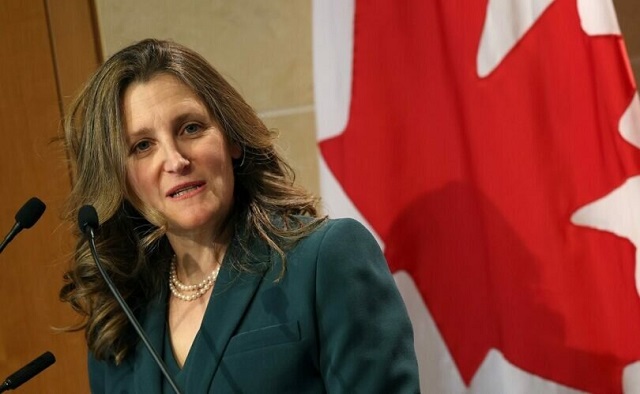
 Housing2 days ago
Housing2 days agoTrudeau’s 2024 budget could drive out investment as housing bubble continues
-

 Alberta2 days ago
Alberta2 days agoAlberta government should create flat 8% personal and business income tax rate in Alberta
-

 Censorship Industrial Complex2 days ago
Censorship Industrial Complex2 days agoDesperate Liberals move to stop MPs from calling Trudeau ‘corrupt’
-

 Great Reset2 days ago
Great Reset2 days agoTerrorists Welcome: Chronic counterterrorism lapses at the border demand investigation
-

 Health22 hours ago
Health22 hours agoTransgender activists are threatening the author of scathing UK report on child ‘sex changes’
-

 National2 days ago
National2 days agoLow and middle income Canadians hit hardest by high marginal effective tax rates
-
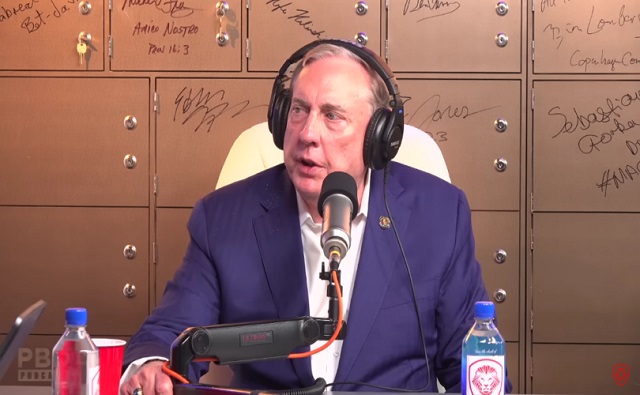
 conflict2 days ago
conflict2 days agoCol. Douglas Macgregor: US is ‘facing disaster’ as it funds overseas wars while bankrupt
-

 Energy2 days ago
Energy2 days agoA Wealth-Creating Way of Reducing Global CO2 Emissions




